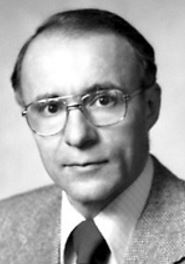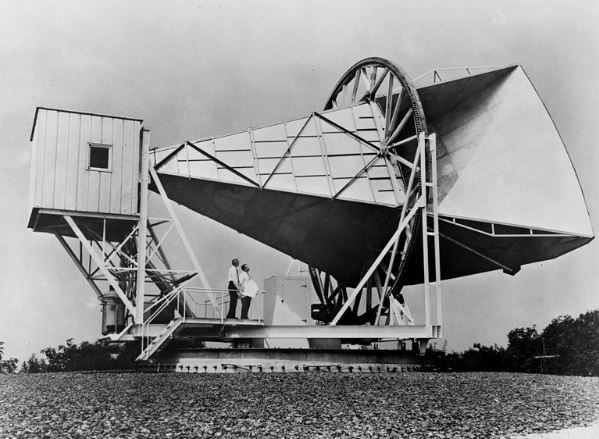Inventor of the Camera Phone
 Philippe Kahn (b. 1952) was born in Paris, France to Jewish immigrants from Eastern Europe. His mother fought alongside the French in World War II (with the rank of lieutenant), and went on to survive Auschwitz. Kahn studied in Zurich and Nice, attaining master’s degrees in both mathematics and music. During his studies, he wrote software for the world’s first modern personal computer, the French-made MICRAL of 1973. In 1982, he started his own company in California called Borland. It was one of the first start-ups to create software development tools, and stood out from other companies as it offered incredibly cheap products. (Its Turbo Pascal, for example, cost only $50 compared to the thousands of dollars that similar tools cost.) Over the next ten years, Kahn transformed Borland into a computer powerhouse with $500 million in revenue. However, a number of disagreements led to the board squeezing him out of his own company. Kahn took his severance pay and started a new company, Starfish. Just a few years later, he sold it to Motorola for a whopping $325 million. Around this time, Kahn’s daughter was born, and he got frustrated at his inability to quickly send baby photos to friends and family. He fiddled with his camera and his phone until he managed to link the two. He then sent history’s first photograph through a cellphone. This inspired him to develop the camera-phone, making it the focus of his new startup, LightSurf Technologies. This company, too, was bought out for $300 million. Since then, Kahn has started yet another company that designs and develops wearable technology. He is also an avid sailor, holding the world record for fastest San Francisco to Hawaii trip, and recently winning the Transpacific Yacht Race from LA to Hawaii. Kahn is credited with inventing the now-ubiquitous camera phone, and TIME Magazine included his first phone photograph in its 2016 list of the 100 Most Influential Photos of All Time.
Philippe Kahn (b. 1952) was born in Paris, France to Jewish immigrants from Eastern Europe. His mother fought alongside the French in World War II (with the rank of lieutenant), and went on to survive Auschwitz. Kahn studied in Zurich and Nice, attaining master’s degrees in both mathematics and music. During his studies, he wrote software for the world’s first modern personal computer, the French-made MICRAL of 1973. In 1982, he started his own company in California called Borland. It was one of the first start-ups to create software development tools, and stood out from other companies as it offered incredibly cheap products. (Its Turbo Pascal, for example, cost only $50 compared to the thousands of dollars that similar tools cost.) Over the next ten years, Kahn transformed Borland into a computer powerhouse with $500 million in revenue. However, a number of disagreements led to the board squeezing him out of his own company. Kahn took his severance pay and started a new company, Starfish. Just a few years later, he sold it to Motorola for a whopping $325 million. Around this time, Kahn’s daughter was born, and he got frustrated at his inability to quickly send baby photos to friends and family. He fiddled with his camera and his phone until he managed to link the two. He then sent history’s first photograph through a cellphone. This inspired him to develop the camera-phone, making it the focus of his new startup, LightSurf Technologies. This company, too, was bought out for $300 million. Since then, Kahn has started yet another company that designs and develops wearable technology. He is also an avid sailor, holding the world record for fastest San Francisco to Hawaii trip, and recently winning the Transpacific Yacht Race from LA to Hawaii. Kahn is credited with inventing the now-ubiquitous camera phone, and TIME Magazine included his first phone photograph in its 2016 list of the 100 Most Influential Photos of All Time.
Words of the Week
The day science begins to study non-physical phenomena, it will make more progress in one decade than in all the previous centuries of its existence.
– Nikola Tesla

First photo taken and sent by a cellphone – June 11, 1997. TIME Magazine ranked it among the 100 Most Influential Photos of All Time.

 Yuri Bentsionovich Milner (b. 1961) was born in Moscow. He studied theoretical physics at Moscow State University before working at the prestigious Lebedev Physical Institute. He found that his abilities in physics were not the best (especially because he was placed on a lower track due to his being Jewish), and decided to switch to business. He first tried selling computers, then went to do an MBA at the University of Pennsylvania, becoming the first person from the Soviet Union to officially study in the US. Upon graduation, he got a job at the World Bank, and in 1995 was made CEO of Russian oligarch Mikhail Khodorkovsky’s investment company. In 1999, Milner read an article and decided it was a good idea to start an online business. He began a series of ventures that brought American-style sites to Russia, including Molotok.ru (the Russian eBay), Boom.ru (free webhosting), and 24×7 (Russia’s Amazon). In 2005, Milner established his own investment fund, Digital Sky Technologies. Five years later, his Mail.ru went public on the London Stock Exchange with a valuation of $5.6 billion. That same year, Milner bought pioneering Israeli instant messaging company ICQ, and has since invested an additional $150 million in Israeli startups. Milner’s venture capital fund has become one of the world’s greatest. He was among the first to invest in Facebook, with an initial $200 million, and plenty more since. He also invested $800 million in Twitter, $125 million in WhatsApp, and $1.6 billion in Alibaba, in addition to Groupon, Snapchat, Airbnb, and Spotify. In 2012, Milner established the Breakthrough Prize, awarding $3 million to great achievements in Physics, Life Sciences, and Mathematics. This is now the largest scientific award in the world, trumping even the Nobel Prize. In 2015, Milner founded the Breakthrough Initiatives to investigate life on other planets. Its first project is a $100 million, 10-year endeavour called “Listen”, searching for radio and laser signals from distant stars with the most sensitive equipment in the world. The most recent Breakthrough Initiative is “Starshot”, investing $100 million to develop a spacecraft that will be accelerated to 20% of the speed of light and take a 20 year journey to our nearest star. Milner also awards (together with
Yuri Bentsionovich Milner (b. 1961) was born in Moscow. He studied theoretical physics at Moscow State University before working at the prestigious Lebedev Physical Institute. He found that his abilities in physics were not the best (especially because he was placed on a lower track due to his being Jewish), and decided to switch to business. He first tried selling computers, then went to do an MBA at the University of Pennsylvania, becoming the first person from the Soviet Union to officially study in the US. Upon graduation, he got a job at the World Bank, and in 1995 was made CEO of Russian oligarch Mikhail Khodorkovsky’s investment company. In 1999, Milner read an article and decided it was a good idea to start an online business. He began a series of ventures that brought American-style sites to Russia, including Molotok.ru (the Russian eBay), Boom.ru (free webhosting), and 24×7 (Russia’s Amazon). In 2005, Milner established his own investment fund, Digital Sky Technologies. Five years later, his Mail.ru went public on the London Stock Exchange with a valuation of $5.6 billion. That same year, Milner bought pioneering Israeli instant messaging company ICQ, and has since invested an additional $150 million in Israeli startups. Milner’s venture capital fund has become one of the world’s greatest. He was among the first to invest in Facebook, with an initial $200 million, and plenty more since. He also invested $800 million in Twitter, $125 million in WhatsApp, and $1.6 billion in Alibaba, in addition to Groupon, Snapchat, Airbnb, and Spotify. In 2012, Milner established the Breakthrough Prize, awarding $3 million to great achievements in Physics, Life Sciences, and Mathematics. This is now the largest scientific award in the world, trumping even the Nobel Prize. In 2015, Milner founded the Breakthrough Initiatives to investigate life on other planets. Its first project is a $100 million, 10-year endeavour called “Listen”, searching for radio and laser signals from distant stars with the most sensitive equipment in the world. The most recent Breakthrough Initiative is “Starshot”, investing $100 million to develop a spacecraft that will be accelerated to 20% of the speed of light and take a 20 year journey to our nearest star. Milner also awards (together with  Arno Allan Penzias (b. 1933) was born in Munich. As a six year old, he was evacuated from Nazi Germany through the British Kindertransport rescue operation which saved 10,000 Jewish children. He was later reunited with his parents, who brought the family to New York. Penzias grew up in Brooklyn and went on to study physics. He graduated among the top of his class, then served two years in the US Army as a radar officer. From there, he got a research position at Columbia University’s Radiation Lab, where he helped to develop the maser (a “microwave laser”). After earning a Ph.D in physics from Columbia, Penzias got a job at Bell Labs to do astronomy research with microwave receivers. He was soon joined by Robert Wilson. The two noticed their antenna picking up an inexplicable signal. After ruling out all forms of interference, and carefully cleaning the antenna, the weak signal persisted. The two collaborated with another physicist, Robert Dicke, to show that this signal was the cosmic microwave background (CMB) radiation, the remnants of the universe’s birth, as predicted by the Big Bang Theory. The existence of CMB confirmed that the universe had a beginning, with a burst of radiation, and simultaneously confirmed ancient Jewish teachings about the universe’s origins. The Zohar, a famous mystical commentary on the Torah that was first published some 700 years ago, explains that the universe began with a nikuda hada d’zohar, a singular point of radiance, from which all things were formed. The Zohar explains that this ever-expanding radiance continues to fill the universe, based on the words in the Biblical Book of Daniel (12:3) which describes the “radiance of the firmament”. In fact, this is how the book got its name, Zohar meaning “radiance”. Penzias’ and Wilson’s monumental discovery brought about a beautiful harmony between Torah and science, at once confirming both the modern Big Bang Theory and the holy words of the ancient Jewish Sages. The two physicists won the 1978 Nobel Prize in Physics. Penzias continued his work at Bell Labs for a total of 37 years, rising to the position of Vice President of Research. He was made a Fellow of the American Academy of Arts and Sciences, and the National Academy of Sciences. Penzias later moved to Silicon Valley to advise venture capitalists and tech start-ups. Despite being in his 80s, he is still a venture partner at New Enterprise Associates, and says he has “no plants to retire”.
Arno Allan Penzias (b. 1933) was born in Munich. As a six year old, he was evacuated from Nazi Germany through the British Kindertransport rescue operation which saved 10,000 Jewish children. He was later reunited with his parents, who brought the family to New York. Penzias grew up in Brooklyn and went on to study physics. He graduated among the top of his class, then served two years in the US Army as a radar officer. From there, he got a research position at Columbia University’s Radiation Lab, where he helped to develop the maser (a “microwave laser”). After earning a Ph.D in physics from Columbia, Penzias got a job at Bell Labs to do astronomy research with microwave receivers. He was soon joined by Robert Wilson. The two noticed their antenna picking up an inexplicable signal. After ruling out all forms of interference, and carefully cleaning the antenna, the weak signal persisted. The two collaborated with another physicist, Robert Dicke, to show that this signal was the cosmic microwave background (CMB) radiation, the remnants of the universe’s birth, as predicted by the Big Bang Theory. The existence of CMB confirmed that the universe had a beginning, with a burst of radiation, and simultaneously confirmed ancient Jewish teachings about the universe’s origins. The Zohar, a famous mystical commentary on the Torah that was first published some 700 years ago, explains that the universe began with a nikuda hada d’zohar, a singular point of radiance, from which all things were formed. The Zohar explains that this ever-expanding radiance continues to fill the universe, based on the words in the Biblical Book of Daniel (12:3) which describes the “radiance of the firmament”. In fact, this is how the book got its name, Zohar meaning “radiance”. Penzias’ and Wilson’s monumental discovery brought about a beautiful harmony between Torah and science, at once confirming both the modern Big Bang Theory and the holy words of the ancient Jewish Sages. The two physicists won the 1978 Nobel Prize in Physics. Penzias continued his work at Bell Labs for a total of 37 years, rising to the position of Vice President of Research. He was made a Fellow of the American Academy of Arts and Sciences, and the National Academy of Sciences. Penzias later moved to Silicon Valley to advise venture capitalists and tech start-ups. Despite being in his 80s, he is still a venture partner at New Enterprise Associates, and says he has “no plants to retire”.